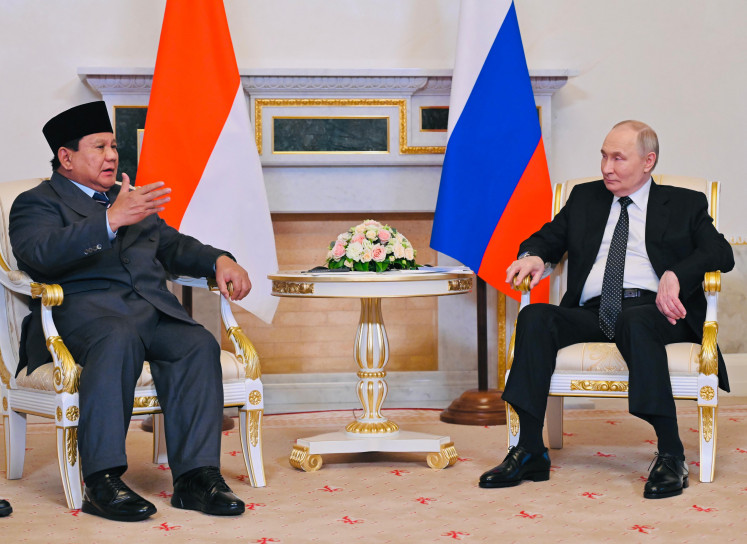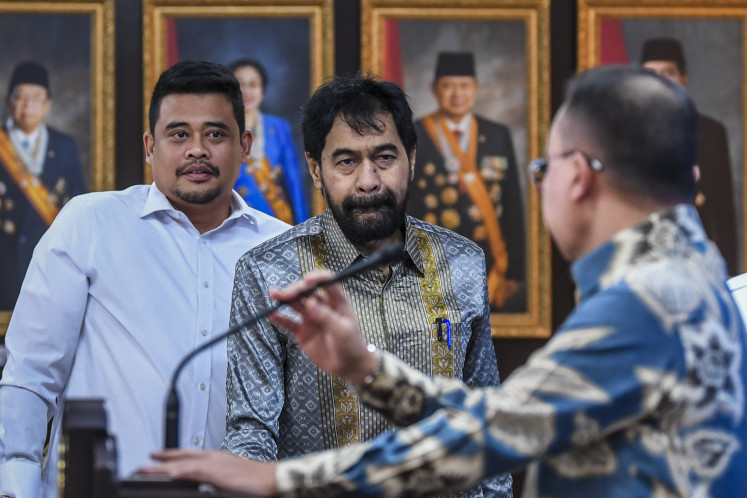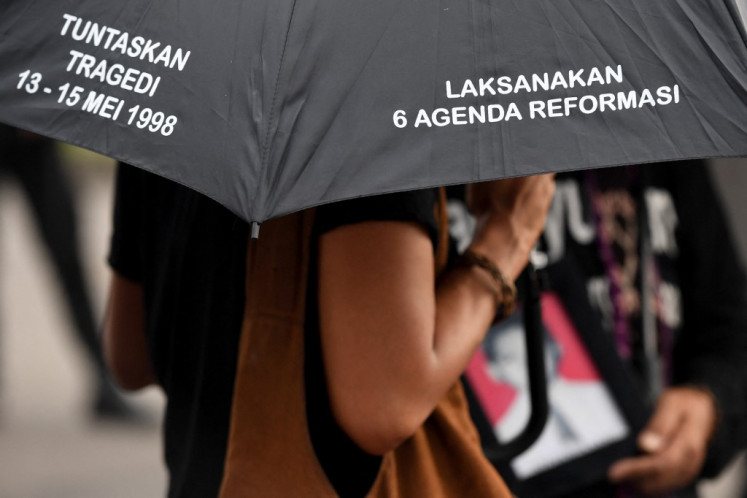Popular Reads
Top Results
Can't find what you're looking for?
View all search resultsPopular Reads
Top Results
Can't find what you're looking for?
View all search resultsBahrain holds election, bans opposition candidates
Government, dominated by Sunni ruling family, bars Shiite Al-Wefaq, secular Waad parties.
Change text size
Gift Premium Articles
to Anyone

B
ahrainis headed to the polls on Saturday but a ban on opposition candidates meant the election would bring no meaningful change despite a record number of people vying for seats, rights groups said.
More than 330 candidates, including a record 73 women, are competing to join the 40-seat council of representatives—the lower house of parliament that advises King Hamad, who has ruled since his father died in March 1999.
This is up from the 293 people—including 41 women—who ran for parliament in the last election in 2018.
Queues formed outside some of the kingdom's 55 polling stations before they opened at 8 a.m. local time.
Amina Issa, head of a polling station in Manama, said turnout was "intense since the first hours, and the numbers are steadily increasing".
After the close of polls at 8 p.m., the government's National Communication Center released an official turnout figure of 73 percent, topping the 67 percent recorded in 2018.
The government, dominated by a Sunni ruling family, has barred the two main opposition groups from fielding candidates – the Shiite Al-Wefaq and secular Waad parties which were dissolved in 2016 and 2017.
"This election will not introduce any change," said United Kingdom–based Bahraini human rights activist, Ali Abdulemam.
"Without the opposition we will not have a healthy country," he told AFP.
The election comes more than a decade after a 2011 crackdown on Shiite-led protesters demanding political reforms.
Since then, authorities have imprisoned hundreds of dissidents – including Al-Wefaq's leader Sheikh Ali Salman – and stripped many of their citizenship.
Official websites hacked
Amnesty International said this week that the election would be held in an "environment of political repression".
A government spokesperson pushed back against that criticism on Saturday, saying in a statement that Bahrain was a "vibrant democracy".
"The exercise of political rights in Bahrain is protected by the constitution, barring cases where nomination requirements are not met. This is standard practice in all democratic countries," the spokesperson said.
"Requirements include not having a criminal record or not belonging to a society dissolved due to their court-proven involvement in acts of violence in contravention of legitimate political activity."
A hacking operation on Friday targeted the official elections website as well as websites for parliament and the state news agency, though all three were restored by Saturday afternoon.
The interior ministry said the sites were "targeted to hinder the elections and circulate negative messages in desperate attempts" to discourage voting.
The identity of the hackers was not immediately clear.
Strategic ally
In 2018, Bahrain passed so-called political and civil isolation laws, barring former opposition party members from running for parliament and sitting on the boards of civil organizations.
Citing Bahraini civil society figures, Human Rights Watch in October said the retroactive bans had affected between 6,000 and 11,000 Bahraini citizens.
The elections "offer little hope for any freer and fairer outcomes", the organization said.
The latest vote comes less than a week after Pope Francis concluded a landmark visit that aimed to promote interfaith dialogue – his second to a Gulf nation following a 2019 trip to the United Arab Emirates.
Without singling out specific countries, the pontiff urged respect for human rights, saying it was vital they were "not violated but promoted".
Located just across the Gulf from Iran, the island state is a strategic Western ally and normalized ties with Israel in 2020.








